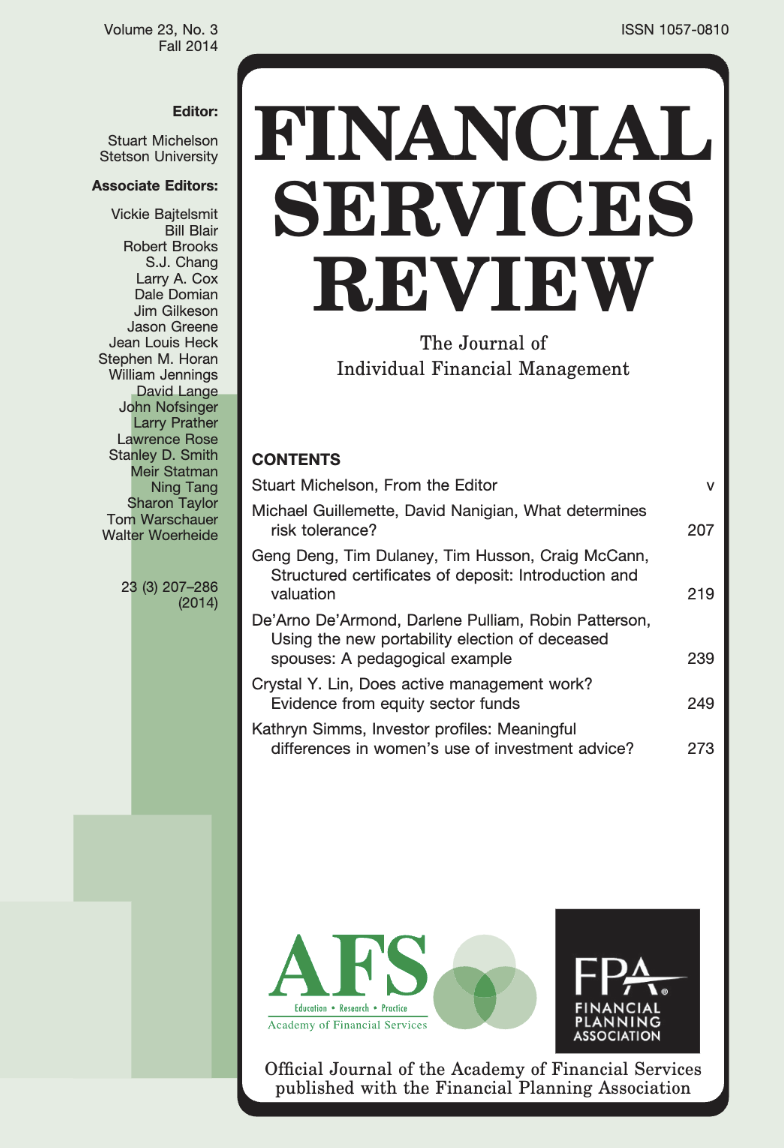Using the new portability election of deceased spouses
A pedagogical example
DOI:
https://doi.org/10.61190/fsr.v23i3.3199Keywords:
Portability election, Lifetime gifts, Financial planning, Estate planning, Tax accountingAbstract
The United States has a unified system that taxes transfers of property during an individual’s lifetime (gifts) and property transferred as a result of the individual’s death. The Tax Relief, Unemployment Insurance Reauthorization, and Job Creation Act of 2010 (the Act) contains a provision that will allow the unused portion of a decedent’s exclusion (taxable estate protected by the unified credit) to be used upon the subsequent death of the surviving spouse. The portability election is simple for situations where it appears the surviving spouse will not remarry, however, becomes much more complicated if the surviving spouse should remarry.
Downloads
Published
How to Cite
Issue
Section
License
Copyright (c) 2014 Academy of Financial Services

This work is licensed under a Creative Commons Attribution-NonCommercial 4.0 International License.
Author(s) retain copyright and grant the Journal right of first publication with the work simultaneously licensed under a Creative Commons Attribution-NonCommercial 4.0 International License that allows to share the work with an acknowledgment of the work's authorship and initial publication in this Journal.
This license allows the author to remix, tweak, and build upon the original work non-commercially. The new work(s) must be non-commercial and acknowledge the original work.


